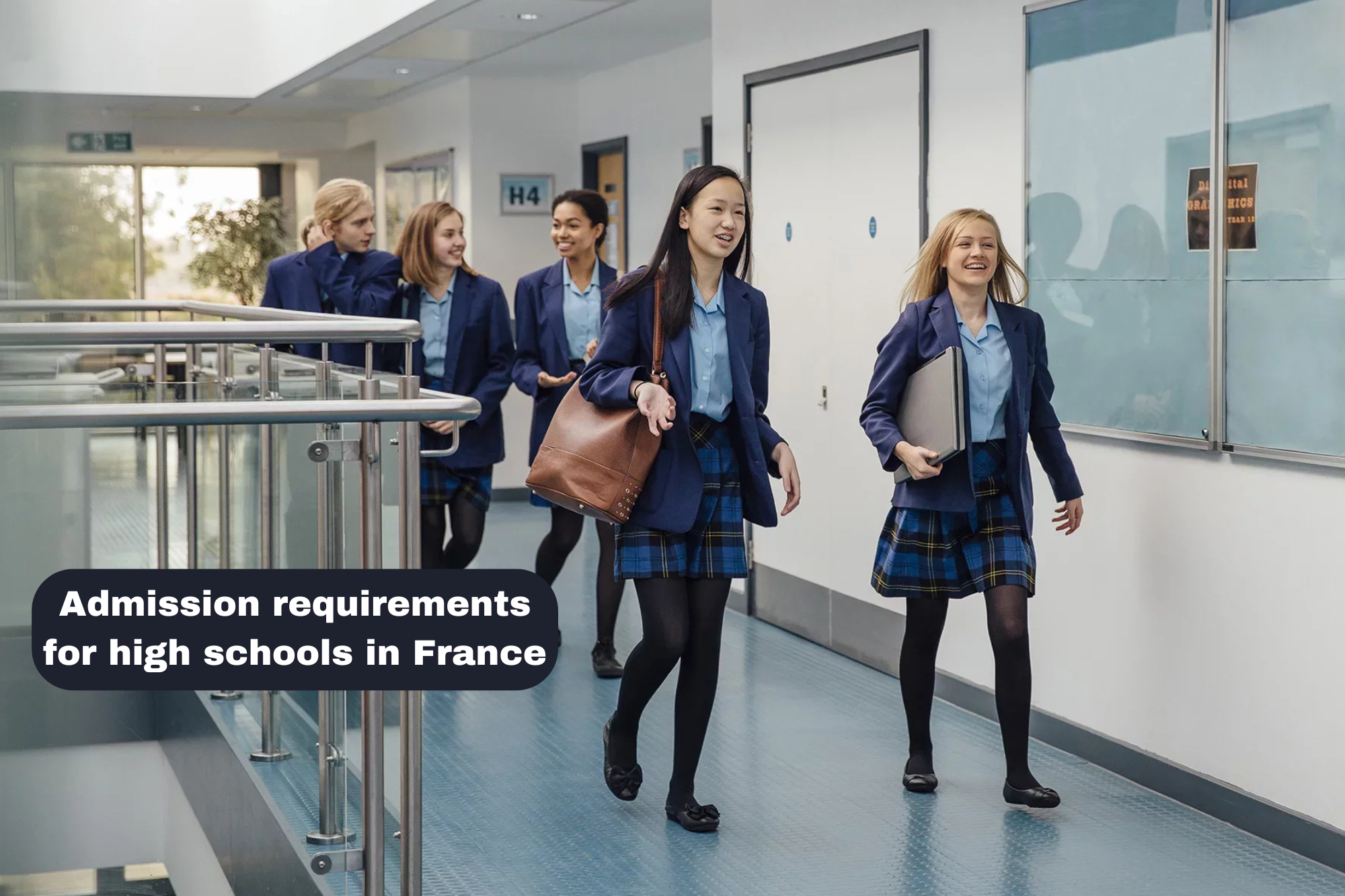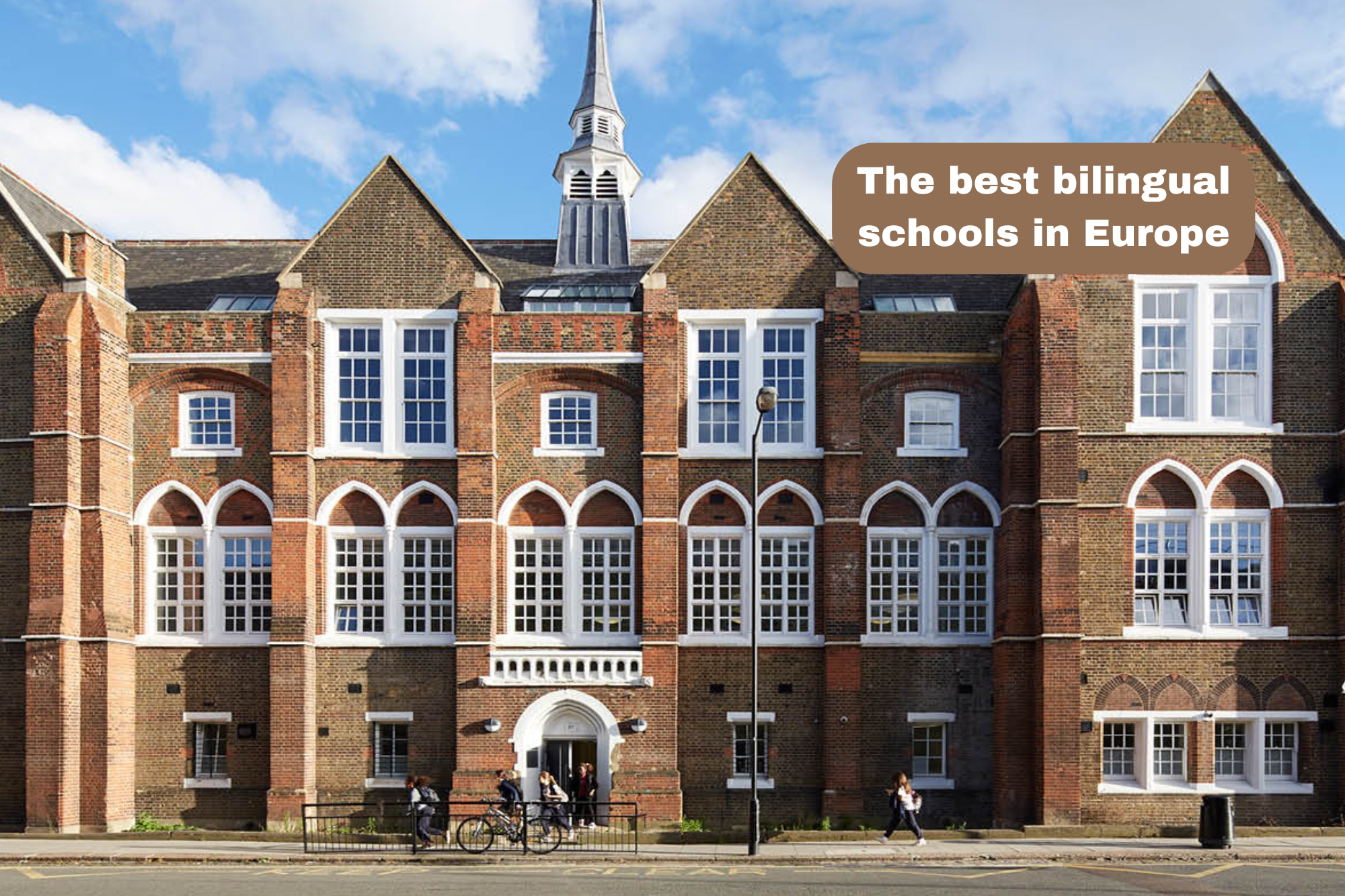Share this Post
France is known for its high academic standards, diverse school options, and strong cultural education.
Many international families choose French high schools due to their rigorous curriculum, bilingual programs, and globally recognized diplomas.
However, the admission process varies depending on whether the student is applying to a public, private, or international high school.
This guide provides a step-by-step breakdown of the admission requirements for high schools in France, including public, private, and international schools, along with language requirements, tuition fees, and required documents.
1. Types of High Schools in France
In France, high school is referred to as “Lycée”, which covers students from ages 15 to 18. There are three main types of high schools:
a) Public High Schools (Lycée Public)
- Government-funded and free for residents
- Follow the French National Curriculum
- Limited spots for international students
- Requires proficiency in French
b) Private High Schools (Lycée Privé)
- Privately funded, often Catholic or independent schools
- Some offer bilingual or international programs
- Tuition fees range from €3,000 – €15,000 per year
c) International and Bilingual High Schools
- Offer English, bilingual, or international curriculums
- May follow IB, British A-Levels, or American Diploma
- Tuition fees range from €10,000 – €30,000 per year
- Higher competition for admission
Choosing the right high school depends on the student’s language skills, academic goals, and budget.
2. Admission Requirements for High Schools in France
The admission criteria vary by school, but common requirements include:
📌 Completed application form – Available on the school’s website or from local education authorities
📌 Previous academic records – Transcripts from the last 2–3 years
📌 Proof of residence in France – Required for public school applications
📌 Birth certificate or passport – Proof of identity
📌 Language proficiency test – For students applying to French-taught schools
📌 Entrance exams (if applicable) – Some private and international schools require math, science, and language assessments
📌 Interview with school officials – To assess the student’s motivation and suitability
📌 Application fee – Usually between €100 – €500 for private schools
3. French Language Proficiency Requirements
If a student is applying to a public or private French-taught high school, they must demonstrate proficiency in French. The following options are available:
✅ DELF (Diplôme d’Études en Langue Française) – A French language proficiency certificate
✅ TEF (Test d’Évaluation de Français) – Another recognized French proficiency test
✅ School-Specific Language Assessments – Some high schools conduct their own tests
For students not fluent in French, some public schools offer “FLE” (Français Langue Étrangère) support, which helps non-native speakers learn French.
4. Application Process for Public High Schools
For international students applying to public French high schools, the process includes:
1️⃣ Contacting the Local Education Authority (Rectorat) – Applications are managed at the Académie level (regional school authorities).
2️⃣ Submitting Required Documents – Including transcripts, proof of residence, and birth certificate.
3️⃣ Language Assessment (if required) – Some schools test students to determine if they need French language support.
4️⃣ Receiving a School Placement – The Académie assigns students to a lycée based on their location and academic profile.
Public high schools are free for residents, but international students without residency may have to pay tuition fees.
5. Application Process for Private and International High Schools
Private and international high schools have independent admission processes, which typically involve:
🔹 Online Application Submission – Including transcripts and recommendation letters
🔹 Language Proficiency Tests – If required for non-native English or French speakers
🔹 Entrance Exams – Some schools require tests in mathematics, science, and languages
🔹 Student Interview – Either in person or online
🔹 Application Fees – Usually non-refundable (€100 – €500 per application)
Deadlines:
- Most private and international schools accept applications between October and March for the next academic year.
- Public school applications typically follow French government deadlines.
6. Tuition Fees and Scholarships
💰 Public High Schools – Free for residents, but non-residents may pay €3,000 – €6,000 per year.
💰 Private High Schools – Cost between €3,000 – €15,000 per year, depending on the school.
💰 International High Schools – Tuition ranges from €10,000 – €30,000 per year.
Scholarship and Financial Aid Options:
🎓 French Government Scholarships – Limited funding for international students
🎓 School-Specific Scholarships – Some private and international schools offer merit-based aid
🎓 Corporate Sponsorships – Some companies fund education for children of expatriate employees
It is recommended to apply early for financial aid, as competition for scholarships is high.
7. Student Life in French High Schools
Students attending high school in France can expect:
🎭 Extracurricular Activities – Arts, music, drama, and technology clubs
⚽ Sports Programs – Football, basketball, tennis, and track & field
🔬 STEM and Science Competitions – Robotics, coding, and mathematics clubs
🌍 Cultural Exchange Programs – Language immersion and study abroad opportunities
International and bilingual schools often provide more extracurricular activities compared to public high schools.
Conclusion
Applying to high schools in France as an international student requires research, proper documentation, and meeting language requirements.
Public high schools offer affordable education, while private and international schools provide bilingual curriculums and globally recognized diplomas.
To increase admission chances, students should prepare academic records, take language proficiency tests, and apply early.
Whether choosing a public, private, or international high school, studying in France offers a rich educational experience and a pathway to top global universities.





